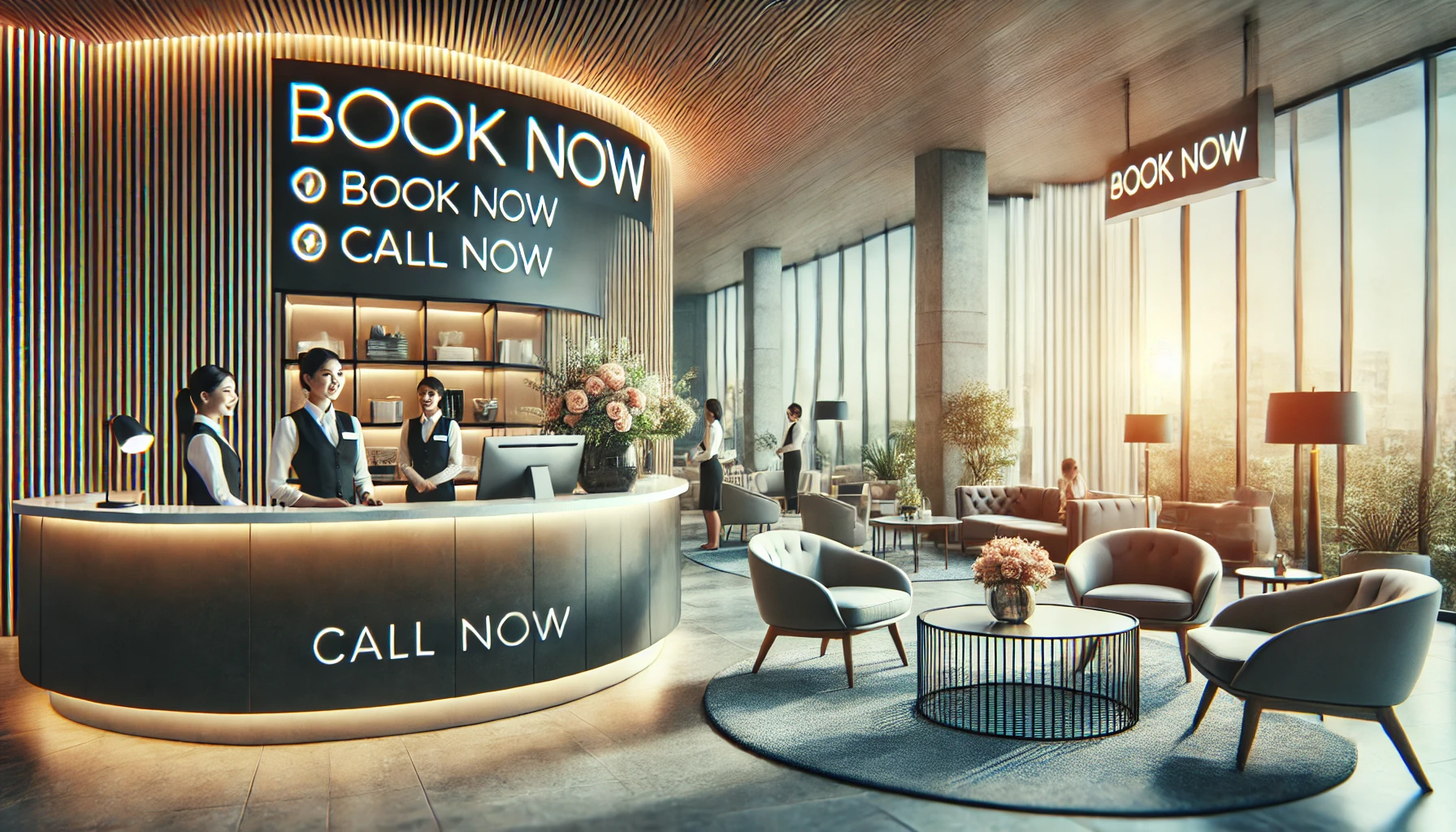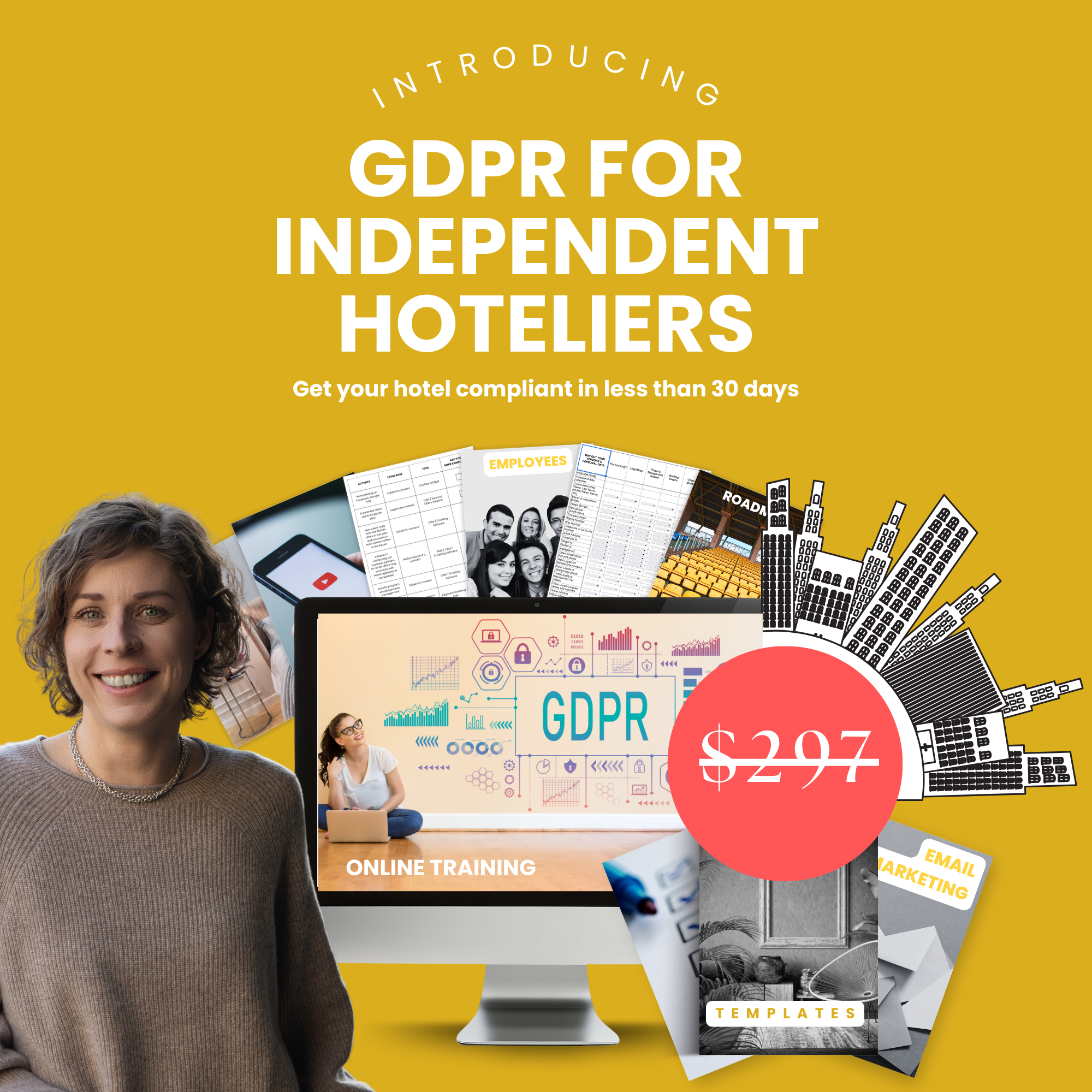How to Turn Good Websites into Great Ones

In the competitive hospitality industry, every accommodation offers a place to spend the night. However, if guests chose solely based on the quality of the beds, the landscape of hospitality would be very different. What truly matters to our clients is the experience. Vacations are about enjoying leisure time to the fullest and filling it with beautiful moments. They want to feel at home and the booking process should be part of this experience – simple, fast, and intuitive. Here’s how you can transform a good website into a great one.
1. “Book Now” Button
Online reservations are fundamental today, especially on mobile devices. Recent statistics from Profitroom indicate that 60% of website visitors use mobile devices for browsing, although actual reservations are still more frequently made on desktops. Ensure your “Book Now” button is prominently displayed and easy to use across all devices.
2. “Call Now” Button
When a customer uses a mobile device to visit your website and wants to call, a visible “Call Now” button is crucial. This button should be on the homepage and every subpage, ideally at the top right or bottom, so it remains accessible as the user scrolls.
3. Live Chat or Smart Chatbot
Make information easily accessible to all visitors, whether they prefer browsing, calling, or emailing. A live chat feature or a chatbot can provide quick answers for those who don’t want to call. This enhances user experience by offering immediate support.
4. Photos and Videos on a Dedicated Subpage
Photos and videos are vital for supporting clients’ decision-making processes. Create a dedicated subpage where all your visual content is available in one place, with each photo having a description. Organize photos into albums based on themes like rooms, conferences, weddings, and surroundings.
5. Directions via Google Widget
Ensure your website includes an interactive map with the ability to plan routes through navigation, rather than just a static image. Activating the Google Maps API allows clients to click through directly to navigation, a detail every client will appreciate.
6. Facilities and Pictograms on the Homepage
Display a complete overview of facilities on your website. Highlight the most important ones using pictograms on the homepage, but also create a detailed subpage with comprehensive information about all the amenities you offer. This provides a unique overview and reassures clients that booking with you is the right decision.
7. Special Offers and Stay Packages
Create enticing offers or unique stay packages to motivate direct bookings. Highlight these offers prominently or present them as pop-up windows. These unique packages reinforce the policy of direct bookings, giving clients exclusive benefits they wouldn’t get elsewhere.
8. Where to Go for a Trip
Inspire your clients with current news about local events or suggestions for trips. This not only helps with Google search rankings but also provides valuable information for clients. Categorize these tips to make it easy for clients to find what interests them most.
9. Reasons to Book Directly
Offer unique perks for direct bookings to give clients a sense of exclusivity. This motivation is often enough for guests to book directly with you rather than through intermediaries.
10. Customer Satisfaction and Reviews
Display individual reviews or summaries of reviews to show potential clients what you excel at. Tools like TrustYou.cz can help you integrate these reviews into your website effectively.
What Your Website Needs “Behind the Scenes”
A great website isn’t just about what the client sees. Ensure it has the right tools to be marketing-friendly. Install Google Analytics and Facebook Pixel, and regularly update your SEO. Conduct keyword analysis periodically and optimize your website based on the results to maintain high visibility in search results.
Modern web design adheres to the principle that less is more. Avoid cluttering your website with too much text; instead, use geometric shapes, icons, and negative space effectively. Concentrate essential information on subpages, and remember: 80% marketing, 20% product. In the hospitality industry, we sell emotions—smiles, pleasant atmospheres, quality sleep, and excellent breakfasts, all of which contribute to the feeling of being at home. Mastering this emotional connection with clients is the key to success.








